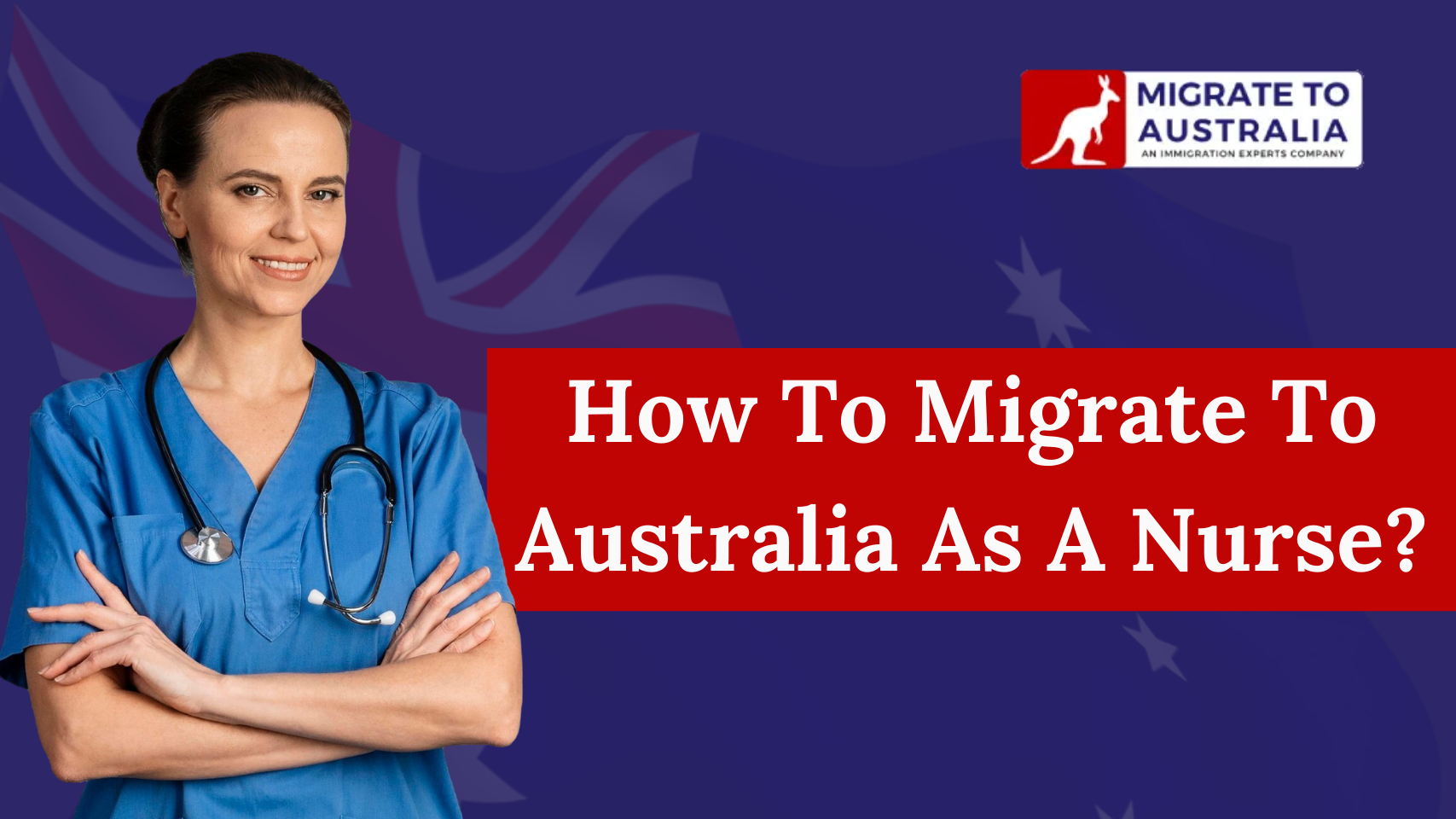Australia is a dream destination for professionals seeking a better quality of life, career advancement, and a welcoming community. Nurses, in particular, have excellent opportunities in Australia, given the country’s demand for skilled healthcare professionals. If you’re wondering how to migrate to Australia as a nurse, this guide will walk you through the essential steps and key considerations, ensuring a smooth migration process.
Why Migrate to Australia as a Nurse?
Nursing is a highly respected profession in Australia, with a robust healthcare system that values skilled professionals. Here are some compelling reasons to consider this move:
- High Demand: Australia’s aging population and healthcare needs ensure a steady demand for nurses.
- Competitive Salaries: Nurses in Australia earn attractive salaries and benefits.
- Professional Growth: Access to world-class healthcare facilities and advanced training programs.
- Quality of Life: Enjoy a balanced lifestyle with excellent healthcare, education, and infrastructure.
Before you embark on this journey, it’s essential to understand the process and requirements to migrate to Australia as a nurse.
Step 1: Check Your Eligibility
The first step in your migration journey is to determine your eligibility. Australia’s skilled migration program requires nurses to meet specific criteria, including:
- Qualification: A recognized nursing degree or diploma that meets Australian standards.
- Registration: Eligibility to register with the Australian Health Practitioner Regulation Agency (AHPRA).
- English Proficiency: Evidence of English language skills through tests like IELTS or OET.
- Experience: Some visas may require professional experience in nursing.
Step 2: Obtain AHPRA Registration
To work as a nurse in Australia, you must register with AHPRA. The registration process involves:
- Qualification Assessment: Ensure your nursing qualifications meet Australian standards.
- Criminal History Check: A background check to ensure you meet the ethical standards.
- English Language Test: Achieve the required scores in IELTS (minimum 7 in each band) or OET (Grade B).
- Bridging Program: If your qualifications don’t fully meet Australian standards, you may need to complete a bridging course.
AHPRA registration is a critical step in the process to migrate to Australia as a nurse and ensures you can legally practice in the country.
Step 3: Choose the Right Visa
Australia offers various visa options for nurses, depending on your circumstances and goals. Some popular visa pathways include:
- Skilled Independent Visa (Subclass 189): A permanent visa for highly skilled workers without sponsorship requirements.
- Skilled Nominated Visa (Subclass 190): Requires nomination by an Australian state or territory.
- Temporary Skill Shortage Visa (Subclass 482): Allows you to work in Australia temporarily with employer sponsorship.
- Employer Nomination Scheme Visa (Subclass 186): A permanent visa sponsored by an employer.
Understanding which visa suits your situation is key to successfully migrating to Australia. Consulting with immigration professionals can help you make an informed decision.
Step 4: Apply for Skills Assessment
A skills assessment is mandatory for certain visas. The Australian Nursing and Midwifery Accreditation Council (ANMAC) assesses your qualifications and experience to ensure you meet the standards for migration purposes. The assessment process typically involves:
- Submission of Documents: Provide proof of your qualifications, work experience, and English proficiency.
- Verification: ANMAC verifies the authenticity of your credentials.
- Outcome Letter: A positive outcome is required to proceed with your visa application.
Step 5: Submit Your Visa Application
Once you have your AHPRA registration and skills assessment, you can lodge your visa application. Here’s what you need to know:
- Expression of Interest (EOI): For skilled visas like Subclass 189 or 190, submit an EOI through SkillSelect.
- Supporting Documents: Ensure all documents, including your passport, qualifications, and work references, are in order.
- Health and Character Checks: Meet Australia’s health and character requirements.
- Processing Time: Visa processing times vary, so plan accordingly.
Step 6: Consider Studying in Australia
If you don’t meet the eligibility criteria for direct migration, pursuing a Study Visa to upgrade your qualifications is a viable option. Studying nursing in Australia not only enhances your credentials but also provides a pathway to permanent residency. Popular nursing courses include:
- Bachelor of Nursing
- Master of Nursing Practice
- Bridging courses for international nurses
A Study Visa allows you to gain Australian qualifications and potentially work part-time during your studies.
Benefits of Consulting Immigration Experts
The migration process can be overwhelming, but consulting experienced professionals can simplify it. Immigration experts offer:
- Personalized Guidance: Tailored advice based on your profile and goals.
- Document Assistance: Help with compiling and verifying documents.
- Up-to-Date Information: Stay informed about policy changes.
- Higher Success Rates: Expert assistance improves your chances of approval.
Challenges and How to Overcome Them
Migrating to Australia as a nurse can present challenges such as:
- Meeting English Proficiency Requirements: Prepare for language tests well in advance.
- Credential Recognition: Ensure your qualifications align with Australian standards.
- Complex Documentation: Stay organized and double-check all paperwork.
With careful planning and the right support, these challenges can be effectively managed.
Conclusion
Migrating to Australia as a nurse is a rewarding journey that opens doors to professional growth and a better quality of life. By following the steps outlined above—from eligibility assessment to visa application—you can navigate the process with confidence. If you’re still unsure about how to migrate to Australia, consider consulting immigration experts to guide you through every step. Whether through direct migration or a Study Visa, Australia offers abundant opportunities for nurses ready to take the leap.

